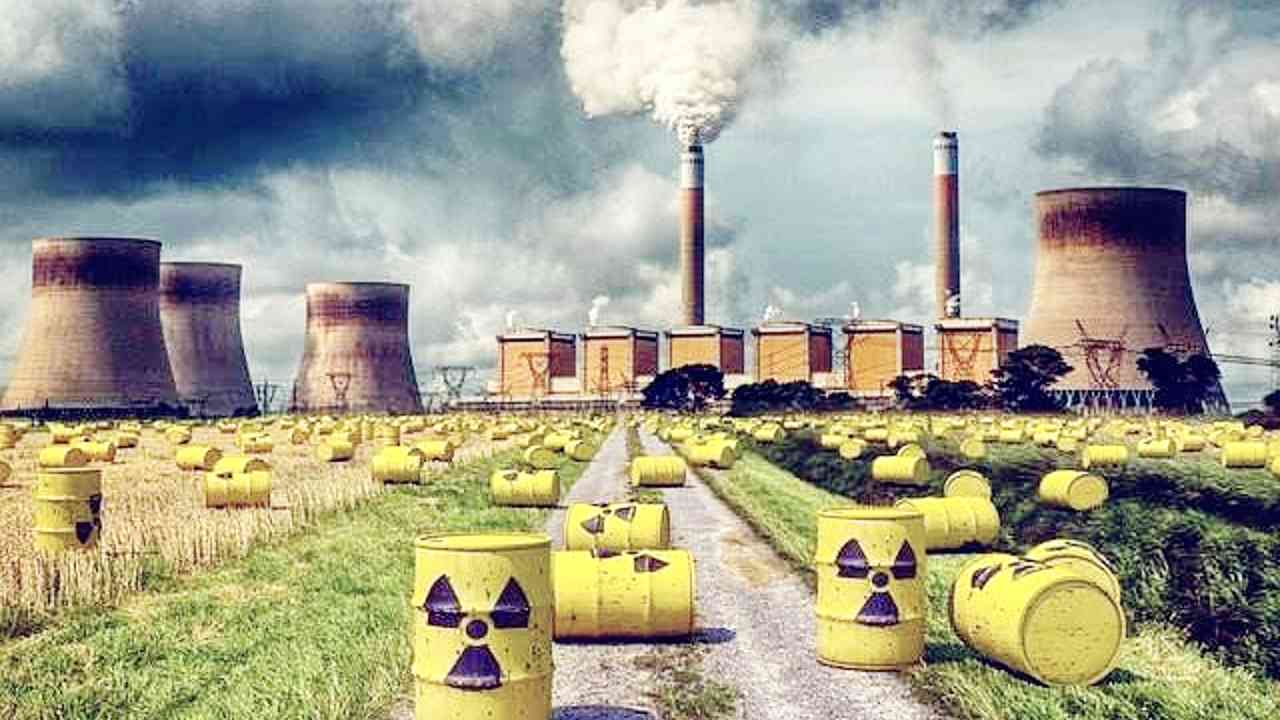The National Alliance of Anti-nuclear Movements (NAAM) has submitted a memorandum to political parties, parliamentarians, activists and civil society members to oppose the Modi government’s plans to dilute the provisions of the Atomic Energy Act, 1962 and Civil Liability for Nuclear Damage Act, 2010. We are reproducing the text of their memorandum:
The Indian government is planning to amend the Atomic Energy Act, 1962, and the Civil Liability for Nuclear Damage Act, 2010 in order to facilitate private companies’ participation in the construction and development of nuclear reactors in India, and to fetch foreign direct investments for the nuclear industry.According to Section 3 of the Atomic Energy Act, 1962, the “Central Government shall have power” “to produce, develop, use and dispose of atomic energy either by itself or through any authority or Corporation established by it or a Government company and carry out research into any matters connected therewith;” “to manufacture or otherwise produce any prescribed or radioactive substance;” “to buy or otherwise acquire, store and transport any prescribed or radioactive substance;” and “to dispose of such prescribed or radioactive substance.”
If this particular stipulation in the Atomic Energy Act, 1962, is changed, it will pave the way for the entry of private players not just as equipment suppliers but also as operators of nuclear power plants and Small Modular Reactors all over India. Having private companies as ‘operators’ is rather dangerous given the unique nature of nuclear energy, emanation of fissile material, accumulation of nuclear waste, and various threats posed to the overall safety and security of the public.
As far as the Civil Liability for Nuclear Damage Act, 2010, is concerned, the definition of “nuclear damage” is rather vague and does pose practical challenges in the interpretation of certain provisions. Nonetheless, it does provide a mechanism for victims to claim compensation for damages caused by nuclear incidents and creates a clear legal framework for dealing with nuclear liability in India.
The Act puts the entire onus of providing compensation on the ‘operator’ of nuclear power plants and lets the ‘supplier’ go scot-free. And the right of recourse provisions allow the operator to seek compensation from the supplier only if such right is included in a written contract, or when a nuclear incident results “as a consequence of an act of supplier or his employee,” or “from the act of commission or omission of an individual done with the intent to cause nuclear damage.” All of this literally means there is hardly any possibility of getting any supplier liability at all.
As per the Liability Act, 2010, the operator of a nuclear facility is liable for damages from a nuclear incident, and the operator is primarily responsible for paying compensation. Operators are required to have insurance or other financial security to cover their potential liabllity. The Nuclear Power Corporation of India Ltd. (NPCIL) is the operator of all our reactors right now and this public utility will end up paying compensation to the public with their own tax money.
Even as it is, we are unhappy with the Liability Act because it caps the total liability amount to 300 million SDRs (Special Drawing Rights). This works out to just about a paltry US$ 460 million (Rs. 3,910 crores) per accident. We find it inconceivable and outrageous that any cap, let alone such a meager one, be placed on the total liability, regardless of the scale of disaster.
This paltry sum of $460 million is even less than the compensation amount of US$ 470 million given to the victims of Bhopal Gas Disaster way back in 1989, which was a gross under-assessment of liability even then. Given the fact that a major nuclear disaster could very much dwarf the Bhopal disaster, the proposed nuclear liability cap appears to be truly a slap on the face of the people of this country.
Further, the Act pegs the “liability” of the ‘operator’ at Rs. 1,500 crores per incident, with the further proviso to lower it down to even paltrier Rs. 300 crores for spent-fuel reprocessing plant accidents. Even in case of an accident in a privately-operated nuclear power plant, the amount of “liability” exceeding the “cap” will have to be paid by the Indian taxpayers. And a lower “cap” for a private ‘operator’ would only further strengthen its intrinsic propensity to cut corners in the realm of “safety” with nightmarish prospects.
This is an unabashed move towards helping profiteering corporations while penalizing the unsuspecting Indian public. In fact, putting a cap on nuclear liability violates the very ‘Right to Life’ as enshrined in Article 21 of the Indian Constitution.
It is indeed shocking that even this inadequate and unsatisfactory liability law is going to be diluted without open, transparent and fair public consultations with the people of this country, whose health and well-being, safety and human rights, and life and futures are being put directly in danger.
For all the above reasons, we strongly oppose any attempt to amend the Atomic Energy Act, 1962, and to dilute the Civil Liability for Nuclear Damage Act, 2010, and that too without widespread public debate on the subject.





